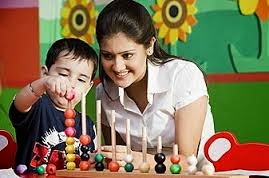“A good teacher is a good student first. By repeating his lessons, he acquires excellence.”The world needs better teachers and more teachers.
There is also the need to raise the skills of the existing 60 million teachers. One of the ways of strengthening the teaching profession is to use distance education or open and distance learning.
Two questions arise here: about effectiveness and about relevance. If open and distance learning for teachers is effective, and working on a big enough scale to be actually or potentially significant, then it is worth going on to ask how it is managed. Therefore there is a need to establish the curriculum of open and distance learning initiatives, and the extent to which this matches that of other forms of teacher education and professional development. One has looked at the technologies, ranging from print to computers, and the relationship between work done through the technologies and work done face-to-face, including all-important issues about classroom practice.
Many countries still do not have enough teachers. In some, the expansion needed in the teaching force is far beyond the capacity of traditional colleges. The supply of teachers is also adversely affected in countries where retention rates are low for newly trained teachers or where in rural areas which have difficulties in recruiting and retaining teachers.
Teacher quality is an issue in most countries. Many teachers are untrained or under qualified or teaching subjects in which they are not qualified or trained. In addition, teachers face a widening range of demands and roles. In some countries teachers can expect one week’s in-service professional development once every five to ten years.
All of this creates new challenges for teacher education and continuing professional development: the need to find ways of using existing resources differently, of expanding access to learning opportunities at affordable cost, of providing alternative pathways to initial teacher training can open and distance learning respond to these challenges? The considerations outlined below offer some answers, in describing a range of uses of open and distance learning for both initial and continuing teacher education.
The cases have been categorized in four ways. Firstly, some countries have used distance education to provide a route to initial qualifications for significant numbers of teachers, both new entrants to teaching and experienced unqualified teachers. Secondly, initial teacher education is no longer seen as enough. Distance education is therefore also being used to raise the skills, deepen the understanding and extend the knowledge of teachers. Some programs are broadly focused while others are targeted at specialist groups.
Thirdly, distance education can have a role in programs of curriculum reform which aim to change either the content or the process of education. In South Africa, the Open Learning Systems Educational Trust is using radio to improve the teaching of English, and to support teachers in this work. Fourthly, distance education has been used for teachers’ career development. As they seek promotion, or aim for the next qualification level, or aspire to become a head teacher, or work in a teachers’ college, or become an inspector, teachers need to acquire new skills.
In general, distance education programs are developed with varied intentions: of widening access to teaching qualifications; of disseminating good practice; of strengthening the education system as a whole by reaching not only teachers but the wider community; in enabling school-based training and professional development and as a means of strengthening the links between theory and practice.
Distance education therefore has been defined as an educational process in which a significant proportion of the teaching is conducted by someone removed in space and/or time from the learner. Open learning, in turn, is an organized educational activity, based on the use of teaching materials, in which constraints on study are minimized in terms either of access, or of time and place, pace, method of study, or any combination of these. The term ‘open and distance learning’ is used as an umbrella term to cover educational approaches of this kind that reach teachers in their schools, provide learning resources for them, or enable them to qualify without attending college in person, or open up new opportunities for keeping up to date no matter where or when they want to study.
For further detailed information contact- iips (9212441844,011-65100006)
http://www.nurseryteachertraining.co.in/


